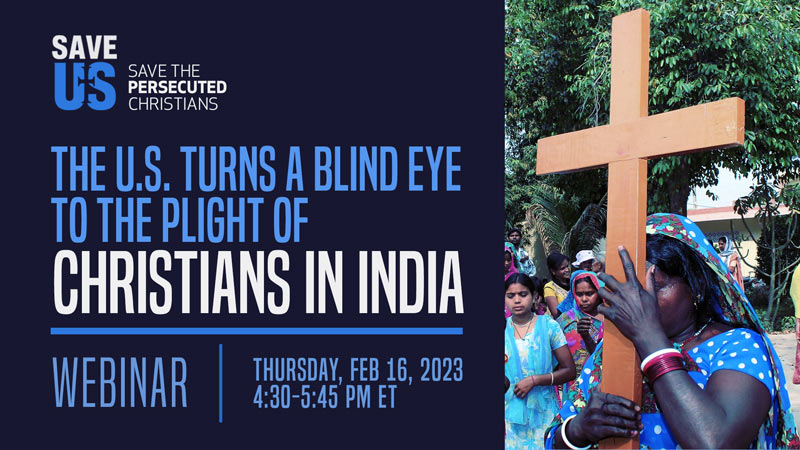Christians seek protection as violence continues in central India
Elected village bodies dictate to Christians what they should believe and how should they live and work Christians seek protection as violence continues in central India An Indian policeman looks at damaged windows at a house in Bhopal on Jan. 28, 2006, after a group of Indian Christians were attacked during a prayer meeting. Christians in the central Indian state of Chhattisgarh have appealed again to their state chief minister to protect them as hundreds of indigenous Christians continue to live in the forest amid rising violence. A delegation under the ecumenical Ecclesia United Forum (EUF) met chief minister Bhupesh Baghel and urged him to take “immediate steps to end violence," said Father Johnson Thekkadayil, a Catholic priest working in the state. “The brutal attacks unleashed on the Christians in Chhattisgarh, especially in the tribal regions, continues unabated,” Father Thekkadayil, who was part of the delegation told UCA News on Feb. 26, three days after they met Baghel. Christians in the Bastar region, dominated by indigenous people, have been witnessing unprecedented violence, reports say. The forms of violence include social boycotts, assaults, parading men and women nude, and encroachments of Christians’ land. Increased violence in the past six months has forced more than 1,000 Christians to flee
Christians seek protection as violence continues in central India
Elected village bodies dictate to Christians what they should believe and how should they live and work Christians seek protection as violence continues in central India An Indian policeman looks at damaged windows at a house in Bhopal on Jan. 28, 2006, after a group of Indian Christians were attacked during a prayer meeting. Christians in the central Indian state of Chhattisgarh have appealed again to their state chief minister to protect them as hundreds of indigenous Christians continue to live in the forest amid rising violence. A delegation under the ecumenical Ecclesia United Forum (EUF) met chief minister Bhupesh Baghel and urged him to take “immediate steps to end violence," said Father Johnson Thekkadayil, a Catholic priest working in the state. “The brutal attacks unleashed on the Christians in Chhattisgarh, especially in the tribal regions, continues unabated,” Father Thekkadayil, who was part of the delegation told UCA News on Feb. 26, three days after they met Baghel. Christians in the Bastar region, dominated by indigenous people, have been witnessing unprecedented violence, reports say. The forms of violence include social boycotts, assaults, parading men and women nude, and encroachments of Christians’ land. Increased violence in the past six months has forced more than 1,000 Christians to flee
Indian protestant bishop arrested under conversion law
Auxiliary Bishop Paul Muniya of the Protestant Shalom Church has been falsely implicated by a local man, his son says Indian protestant bishop arrested under conversion law A Protestant bishop in the Central Indian state of Madhya Pradesh has been remanded to judicial custody over allegations he violated the provisions of the state's stringent anti-conversion law. Auxiliary Bishop Paul Muniya of the Protestant Shalom Church in the Jhabua district, inhabited predominantly by tribal communities, surrendered to the local police on Feb. 23 to comply with an order issued by the Madhya Pradesh High Court. “The high court order said he would be granted bail once he surrendered to the police, but instead he was sent to jail,” the bishop’s son Kaleb Muniya told UCA News on Feb. 24. Police charged Bishop Muniya under the state’s anti-conversion law following a complaint by local resident Kailash Bhuria on Jan. 11. Bhuria alleged that he was being intimidated to attend prayer services by the bishop and Tita Bhuria, a church elder. The duo in September last year took him to a nearby church and sprinkled water on him, gave him a Bible and a cross, he said. The bishop accompanied by the church elder also visited his house in January
Religious event disrupted by cyclone in Jashpur district of Chhasttisgarh state
A religious event organized to forcefully convert the Christian converts to Hinduism was disrupted by an unusual cyclone. The cyclone destroyed the temporary shade structure under which the event was taking place. Religious event disrupted by cyclone
Indian archdiocese alleges minorities cut from voter list
Bangalore archdiocese says thousands of Christians, Muslims deleted from electoral roll ahead of Karnataka state polls Several thousand voters belonging to religious minorities such as Christians and Muslims have been allegedly removed from electoral rolls in the southern Indian state of Karnataka, say Catholic leaders. The state, where the pro-Hindu Bharatiya Janata Party (BJP) runs the government, is headed for polls in May and Christian leaders suspect deleting minority voters could be a strategy to retain power. A delegation from Bangalore archdiocese on Feb. 15 submitted a memorandum to the state's chief electoral officer (CEO) saying a total of 9,195 voters' names were removed from electoral rolls of the Shivajinagar constituency in the state capital, Bengaluru. At least Some 8,000 names were of Christians and Muslims, the memorandum said. “We fear that [voters lists for] many constituencies across Bengaluru city could have tampered with impunity. If such mischief is allowed to carry on unchecked, the confidence of the people in the electoral process will be destroyed beyond measure,” J. A. Kanthraj, public relations officer of the Archdiocese of Bangalore, told UCA News. He said it appeared to be clear manipulation to prevent Christians and Muslims from casting their votes in the upcoming elections. Repeated attempts by UCA
Indian Christians unite to protest against hate crimes
Thousands march in Delhi against rising number of attacks, especially in anti-conversion law states Christians protest against rising hate crimes against them in New Delhi on Feb. 19 Thousands of Christians, representing nearly 79 denominations, staged a protest march in India’s capital on Feb. 19 against a growing number of hate crimes against them. More than 2,000 Christians demanded the federal government, judiciary and civil society take action to stop atrocities against them, with particular concern for those in the states of Uttar Pradesh, Chhattisgarh, Madhya Pradesh, Uttarakhand, Karnataka and Jharkhand. Most of these states, ruled by the pro-Hindu Bharatiya Janata Party, have enacted sweeping anti-conversion laws. “Our prime minister speaks of 'sabka saath, sabka vikas' [collective efforts for inclusive growth], but what is happening to the Christian community in the country?
Demolition threatens 400-year-old chapel in India
Local Catholics say the administration plans to raze the chapel to expand a football stadium A four-century-old chapel in western India dating back to the Portuguese colonial era faces a threat of demolition as the administration aims to acquire land to turn it into a football stadium, local Catholics say. Catholic leaders say the chapel of Our Lady Of Remedies in Daman faces threat due to a controversial beautification drive planned by Praful Patel, the administrator and a leader of the pro-Hindu Bhartiya Janata Party (BJP). Daman and Diu is a federally ruled territory that comes directly under the administrative control of the BJP-led government in New Delhi. Territory's administrator Patel neither confirmed nor denied the move to demolish the chapel to expand the football field. “No, I have no idea, you ask the local authorities,” he told UCA News. But local Catholics said the administration was firm about the demolition plan. "They want to acquire the chapel's land
Indian yoga guru is kicking up a storm ahead of polls
Baba Ramdev raises specter of ‘conversion’ while denigrating Muslims and Christians in Congress-ruled Rajasthan state India’s Yoga guru-turned-business tycoon Baba Ramdev may not have bargained for police action when he made provocative remarks against Muslims and Christians at a recent gathering of Hindu leaders in the northern state of Rajasthan. The state’s police registered a case against him for promoting enmity and outraging religious feelings by insulting religion. Ramdev, who is perhaps one of the richest "godmen" in India, joins a long list of hate mongers and votaries of Hindutva who advocate Hindu supremacy and seek to transform India into a Hindu nation, a project incubated a century ago at the Nagpur headquarters of the Rashtriya Swayamsevak Sangh (RSS), the Hindu nationalist paramilitary volunteer organization. Like many so-called godmen, Ramdev also makes no bones about his links with India’s ruling Bharatiya Janata Party (BJP), an offshoot of the RSS, and openly campaigned for it during the 2014 parliamentary elections. Perhaps he wants to play a bigger role ahead of the 2024 elections. That is what it looks like. What exactly did Ramdev say in Barmer, Rajasthan on Feb. 2 that offended Muslims? The speech prompted a section of Muslim clergy to issue a call to boycott products
‘Congress in Chhattisgarh Has Utterly Failed to Defend Rights of Christian Adivasis’
Brinda Karat tells Karan Thapar that attacks on Christian Adivasis in Chattisgarh have continued for 5 months and have done extensive damage to homes, churches and livelihoods and forced up to 2,000 people to flee their villages. Senior politburo member of the CPI(M) and former Rajya Sabha MP Brinda Karat, speaking about attacks on Christian Adivasis in Chhattisgarh, which have continued for 5 months and have done extensive damage to homes, churches, belongings and livelihoods and forced up to 2,000 people to flee their villages, says, “The Congress has utterly failed to defend the constitutional rights of Christian Adivasis.” She has raised this matter in a letter addressed to chief minister Bhupesh Baghel and, in response, the home minister met a CPI(M) delegation on February 7. They asked why no one from the government has met the victims but did not get a meaningful answer from the home minister. She says even the Congress party president in Chhattisgarh, who is also the MLA for Narayanpur, where many of the 60-70 villages where the Christians have been attacked are located, has failed to visit his own constituency. She also says “not a single family or individual victim has received any compensation”. In a 30-minute




